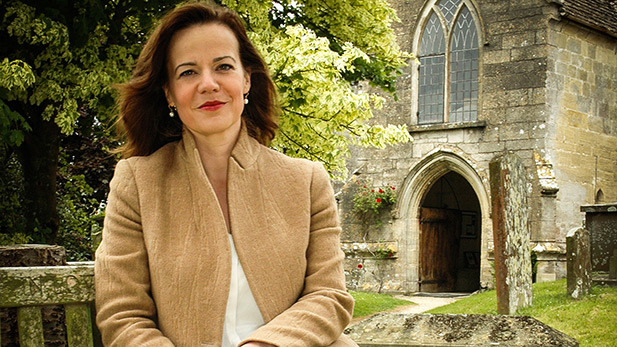 Historian, author and television presenter Helen Castor
Historian, author and television presenter Helen Castor8 p.m
Episode 1: A Good Birth
For a medieval woman approaching the moment of labor and birth, there were no antiseptics to ward off infection or anesthetics to deal with pain. This was one of the most dangerous moments a medieval woman would ever encounter, with some aristocratic and royal women giving birth as young as 13. Birth took place in an all-female environment — the male world of medicine was little help to a woman in "confinement." It was believed that the pains of labor were the penalty for the original sin of humankind so, to get through them, a pregnant woman needed the help of the saints and the blessing of God himself.
9 p.m
.
Episode 2: A Good Marriage
Marriage is a rite of passage made by choice and in the Middle Ages it wasn't just a choice made by bride and groom — they were often the last pieces in a puzzle, put together by their parents according to rules laid down by the church. Castor reveals how in the Middle Ages marriage was actually an easy process. One could get married in a pub or even a field simply by exchanging words of consent. From the 12th century onward, the Catholic Church tried to control this conjugal free-for-all. For the church marriage was a way to contain the troubling issue of sex, but, as the film reveals, it was not easy to impose rules on the most unpredictable human emotions of love and lust.
10 p.m.
Episode 3: A Good Death
In the Middle Ages, death was always at hand, even before the horrors of the Black Death, which killed millions in a few short months. However, for the people of the Middle Ages, death wasn't an end but a doorway to everlasting life. The church taught that an eternity spent in heaven or hell was much more important than this life's fleeting achievements and there was much you could do to prepare for the next life in this one. As Castor reveals, how to be remembered — and remembering your loved ones — shaped not only the worship of the people of the Middle Ages but the very buildings and funding of the medieval church itself.
Medieval Lives: Birth, Marriage, Death, Monday at 8 p.m. on PBS 6.

By submitting your comments, you hereby give AZPM the right to post your comments and potentially use them in any other form of media operated by this institution.